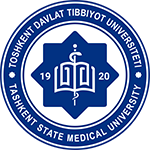At this time, one of the most pressing topics around the world is the spread of coronavirus infection. In this regard, citizens have a lot of questions that are answered today by the doctor of medical Sciences, Director of the Research Institute of epidemiology of Microbiology and infectious diseases under the Ministry of health Botir TAJIEV.
– Tell us about the new COVID-2019 coronavirus and its symptoms.
– Coronaviruses infect cells of the respiratory tract. The incubation period of COVID-2019 is from 2 to 14 days. Currently, the spread of the virus is supported mainly by human-to-human transmission, often in close contact. Symptoms of the coronavirus include fever (fever), cough, fatigue, and shortness of breath.
People of all ages can be infected with the new coronavirus. Older people and people with chronic diseases and weakened immune systems are more likely to suffer from the disease. Experts from the world health organization and countries around the world are actively working on creating an antiviral vaccine and treatment methods.
– How important is frequent hand washing to protect against infection?
– This is one of the necessary measures to prevent the disease. It is recommended to wash your hands frequently and thoroughly with soap under running water, and use alcohol-based disinfectants. You should also wash your hands before, during, and after cooking, as well as before eating or after contact with animals. At this time, the Ministry of health, together with other organizations and departments, has established “Sms-informing” on mobile phones, so that people take preventive measures.
– What other recommendations can you give so that people can protect themselves?
– Don’t touch your face with your hands. If possible, reduce your visits to crowded places, such as agricultural bazaars, train stations, and large stores. When visiting bazaars, avoid direct contact with animals. Cover your nose and mouth when coughing, blowing your nose, or sneezing with the outside of your elbow, sleeve, or paper napkin, which you should immediately throw into bins after use and wash your hands.
– How much is it necessary to wear a mask as a protection against infection?
– The mask should be worn if a person has signs of a respiratory infection (cough, difficulty breathing), cares for a patient with symptoms of a respiratory infection, is a health care worker and visits patients with respiratory symptoms. And in other cases, a healthy person does not have to wear a mask, a sick person must not part with it, so as not to infect others.
– What measures should be taken to ensure food safety?
– When cooking, we recommend using different boards and knives for slicing raw meat and ready-made food. It is necessary to wash your hands thoroughly after touching raw foods, especially meat and dairy products, only then can you touch the finished food. Meat products can only be used for food if they are well cooked and thoroughly cooked. Avoid eating raw or undercooked animal products. Raw meat and milk should be handled carefully to avoid cross-contamination.
– What can I recommend to people who are going to travel abroad?
– First of all, we recommend that you postpone your trips abroad if possible. And if this is so necessary, then you need to take precautions. That is, you should often wipe your hands with alcohol-based wet wipes, use alcohol-based disinfectants, or wash your hands with soap. Also, avoid close contact with people who have signs of a cold or flu. Don’t touch your face with your hands. If you feel ill, inform the group members you are traveling with and contact your doctor as soon as possible.
Public relations Department
Health ministry.




